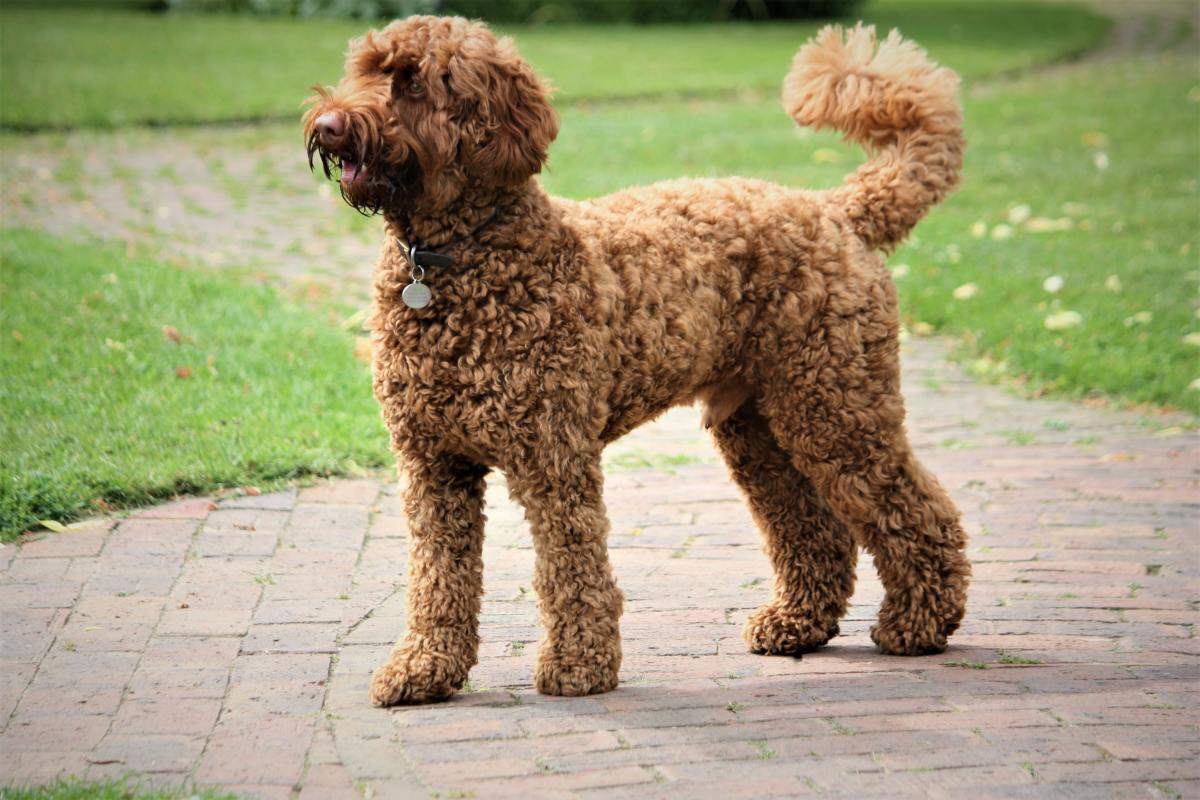Poodle crosses, often referred to as “designer dogs,” have gained popularity in recent years for their unique and adorable qualities. However, there is a common misconception that poodle crosses are inherently bad. But is that really the case?
When it comes to poodle crosses, their temperament and behavior can vary depending on the individual dog. While some people may have had negative experiences with certain poodle crosses, it is important to understand that breed traits and characteristics can influence their behavior. Proper training, socialization, and responsible breeding practices can greatly contribute to a well-behaved and happy poodle cross.
Poodle crosses can vary in temperament and behavior depending on the specific mix. While some poodle crosses may exhibit undesirable traits like excessive barking or stubbornness, many are known for their intelligence and hypoallergenic qualities. It’s important to research and consider the characteristics of both the poodle and the other breed in the mix before adopting a poodle cross. Proper training and socialization can also greatly influence their behavior. Ultimately, whether a poodle cross is “bad” or not depends on individual factors and responsible ownership.

Unveiling the Truth: Are Poodle Crosses Bad?
When it comes to poodle crosses, there seems to be a lot of debate surrounding their behavior, temperament, and health. Some people swear by these designer dog breeds, while others claim they are problematic and not worth the hype. So, are poodle crosses bad? Let’s take a closer look at this topic and unravel the truth.
Understanding Poodle Crosses
Poodle crosses, also known as hybrid dogs or “designer breeds,” are the result of mixing a poodle with another purebred dog. The most common poodle crossbreeds include Labradoodles (Labrador Retriever + Poodle), Goldendoodles (Golden Retriever + Poodle), and Cockapoos (Cocker Spaniel + Poodle). These crossbreeds were initially bred to combine the desirable traits of both breeds, such as intelligence, low shedding, and friendly temperaments.
However, the popularity of poodle crosses has led to a surge in “backyard breeders” and puppy mills, resulting in poorly bred and potentially problematic dogs. This has contributed to the negative perception of poodle crosses in some circles. Therefore, it is essential to choose a responsible breeder who prioritizes the health and welfare of the puppies.
The Pros and Cons of Poodle Crosses
Pros
Poodle crosses offer several advantages that make them appealing to dog lovers:
- Hybrid vigor: Crossbreeding can introduce hybrid vigor, which may lead to improved health and longevity compared to purebred dogs.
- Reduced shedding: Poodles are known for their low-shedding coats, and poodle crosses often inherit this trait, making them suitable for individuals with allergies.
- Variety of sizes and traits: Poodle crosses come in various sizes and have a combination of traits from both parent breeds, offering a wide range of options to suit different lifestyles.
- Intelligence and trainability: Poodles are highly intelligent and trainable dogs, and their crosses often inherit these qualities, making them easy to train.
- Friendly and sociable: Poodles and their crosses are generally friendly and sociable dogs, making them great family pets.
Cons
While poodle crosses have their advantages, there are a few potential drawbacks to consider:
- Health issues: Poodle crosses may still inherit underlying health conditions from their parent breeds, so it’s crucial to research the health history of both the poodle and the other breed involved.
- Inconsistent traits: When two different breeds are crossed, it can be challenging to predict which traits the puppies will inherit, making it important to have realistic expectations.
- High grooming needs: Poodles and their crosses usually require regular grooming to maintain their coat’s condition and prevent matting.
- Potential temperament issues: Poorly bred poodle crosses can have behavioral problems, so it’s essential to choose a reputable breeder who prioritizes temperament and socialization.
Are All Poodle Crosses Bad?
No, not all poodle crosses are bad. The key lies in responsible breeding and reputable breeders who prioritize the health and welfare of the puppies. It’s essential to do thorough research and find a breeder with a good reputation, health testing practices, and a commitment to producing well-rounded and healthy poodle crosses.
Additionally, proper training, socialization, and ongoing care play a significant role in shaping a dog’s behavior, regardless of their breed or mix. With the right approach, poodle crosses can make wonderful pets and companions.
Choosing the Right Poodle Cross
If you’re considering getting a poodle cross, here are some tips for choosing the right one:
- Research the parent breeds: Understand the characteristics, exercise needs, and potential health issues associated with both parent breeds.
- Visit the breeder: Ask to see the puppies’ parents and their living conditions. A reputable breeder should be open and transparent about the breeding process.
- Ask for health testing: Ensure that the breeder has conducted health testing on the parent breeds to minimize the risk of inherited health conditions.
- Check references and reviews: Talk to previous buyers and read reviews to gauge the breeder’s reputation and the quality of their poodle crosses.
- Meet the puppy: Spend time with the puppy before bringing them home to assess their temperament and compatibility with your lifestyle.
- Consider professional training: Investing in professional training can help set your poodle cross up for success and address any behavioral issues that may arise.
By following these steps and investing time and effort into your poodle cross’s health, training, and socialization, you can maximize their potential and ensure a positive experience for both you and your furry friend.
So, Are Poodle Crosses Bad? The Verdict
Poodle crosses, like any other dog breed or mix, are not inherently bad. The key lies in responsible breeding, proper care, and ongoing training and socialization. With the right approach, poodle crosses can make loving, intelligent, and well-rounded pets. It’s essential to choose a reputable breeder and invest time in their upbringing to ensure a happy and healthy bond with your poodle cross.
Key Takeaways
- Poodle crosses can have a variety of traits and characteristics, both positive and negative.
- The temperament and behavior of a poodle cross will depend on the other breed it is crossed with.
- Socialization and training are crucial for any dog, including poodle crosses, to ensure good behavior.
- Poodle crosses may have a higher risk of certain health issues, so it’s important to choose a reputable breeder.
- The decision to get a poodle cross should be based on individual research and evaluation of the specific crossbreed.
Frequently Asked Questions
Here are some commonly asked questions about poodle crosses.
1. Do poodle crosses make good family pets?
Poodle crosses, also known as “doodles,” can make excellent family pets. They are often bred for their hypoallergenic qualities, which can be beneficial if family members have allergies. These crosses of poodles with other breeds, such as Labradors or Golden Retrievers, tend to be friendly, social, and intelligent. They are typically good with children and get along well with other pets in the household.
However, it is important to remember that individual temperament can vary, so it’s essential to do proper research and meet the specific dog before bringing them into your home. Proper socialization and training are also key factors in ensuring a poodle cross becomes a well-behaved family pet.
2. Are poodle crosses prone to health issues?
Like any breed or crossbreed, poodle crosses can be prone to certain health issues. However, the advantage of crossbreeding is the potential for genetic diversity, which can help mitigate some breed-specific health problems found in purebred poodles.
Common health issues that may be seen in poodle crosses include hip dysplasia, allergies, and eye problems. It is important to choose a reputable breeder who conducts health screenings on the parent dogs to minimize the risk of potential health issues. Regular veterinary check-ups and a balanced diet can also contribute to the overall health and well-being of a poodle cross.
3. Do poodle crosses require a lot of grooming?
Poodle crosses often inherit the low-shedding coat of their poodle parent, which means they require regular grooming to prevent matting and maintain a healthy coat. The frequency of grooming can vary depending on the individual dog’s coat type, but most poodle crosses benefit from regular brushing to keep their fur in good condition.
In addition to brushing, poodle crosses may also need occasional haircuts to keep their coat at a manageable length. Some owners choose to take their poodle crosses to professional groomers, while others opt to learn how to do it themselves. Either way, it’s important to establish a grooming routine early on to keep their coat and skin healthy.
4. Can poodle crosses be trained easily?
Poodle crosses are often highly trainable, thanks to their poodle parent’s intelligence and eagerness to please. They tend to pick up commands and tricks quickly, making them a good choice for first-time dog owners or families looking for a trainable companion.
Consistency and positive reinforcement methods work well with poodle crosses. They respond well to rewards, such as treats or praise, and enjoy mental stimulation through obedience training or interactive games. Early socialization and puppy training classes are highly recommended for poodle crosses to ensure they develop into well-mannered and obedient dogs.
5. Are poodle crosses suitable for people with allergies?
Poodle crosses are often sought after by people with allergies or asthma because they have a higher chance of being hypoallergenic. The poodle’s curly or wavy coat is less likely to shed dander, which is a common allergen. However, it’s important to note that not all poodle crosses will be hypoallergenic, as their coat type can vary depending on the other parent breed.
If someone in your household has allergies, it’s recommended to spend some time around the specific poodle cross you’re considering to see if they trigger any allergic reactions. Consulting with an allergist or doing an allergy test can also provide valuable insights. Additionally, regular grooming and keeping the living environment clean can help minimize allergens and ensure a more comfortable living situation.

Aggressive Poodle Mix Attacks Owner’s Family | Cesar 911
To summarize, poodle crosses are not inherently bad, but it ultimately depends on the individual dog and its upbringing. Crossbreeding can result in a wide range of traits, both physical and behavioral, so it’s essential to research and choose a reputable breeder.
While poodle crosses like Labradoodles and cockapoos can be affectionate, intelligent, and hypoallergenic, there is no guarantee that every crossbreed will have these qualities. It’s crucial to consider the specific needs and temperaments of the parent breeds to understand potential traits in the offspring.
